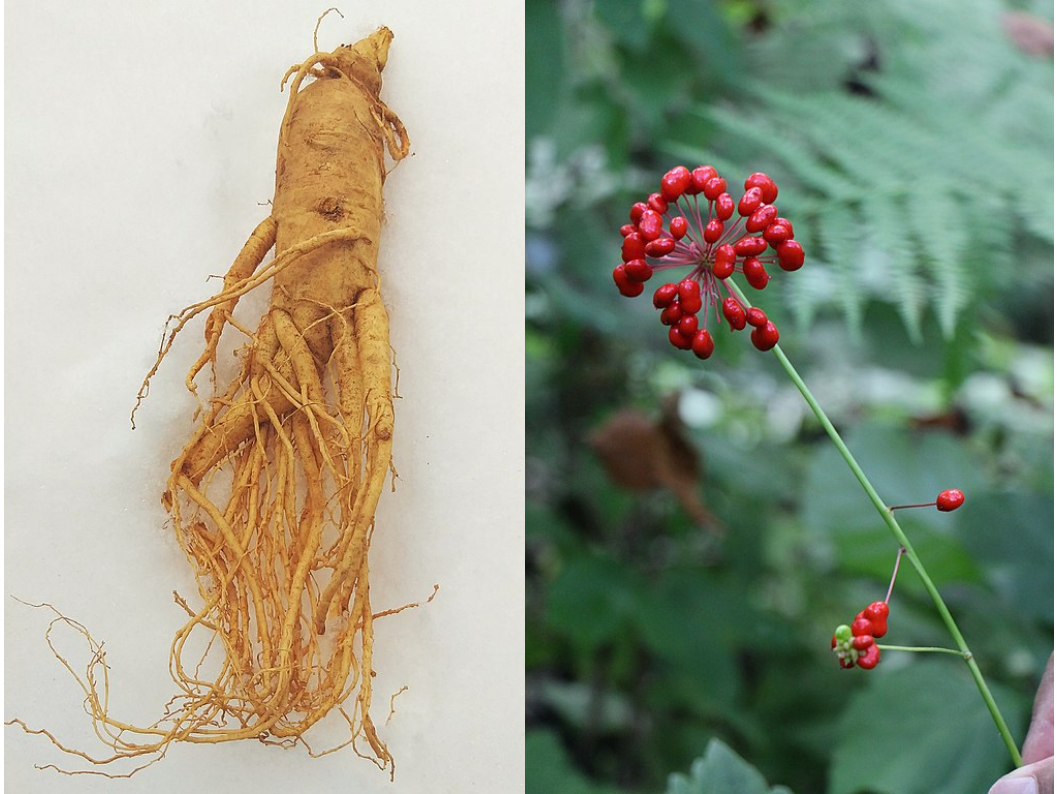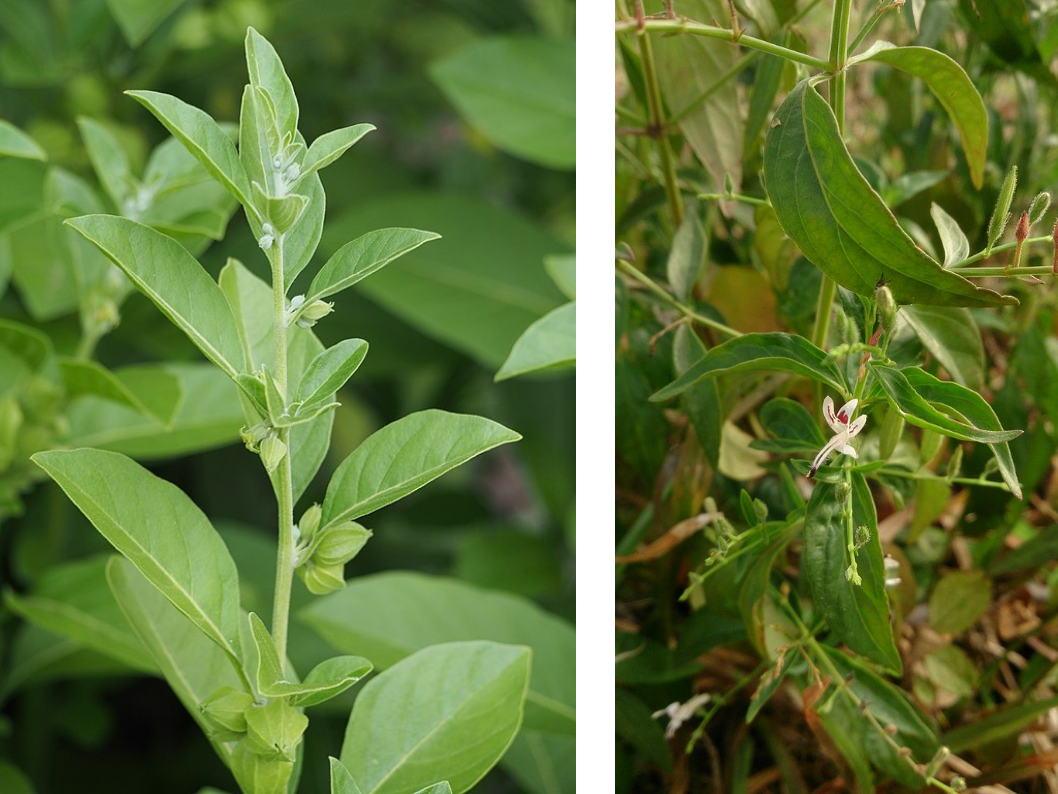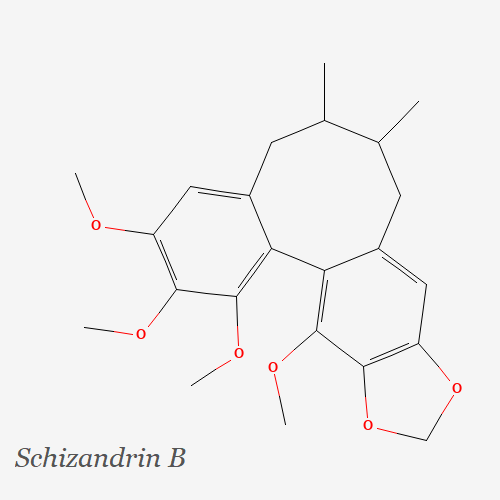Introduction
Adaptogenic plants have been used for centuries to help the body adapt to stress. These plants are believed to help the body maintain balance and homeostasis by regulating the body’s response to stress, promoting adaptability and resilience. Some examples of adaptogenic plants include ashwagandha, rhodiola, ginseng, and cordyceps; these plants can be used to combat stress and fatigue.
Adaptogens can be used to:
- promote faster recovery after intense exercise and overexertion,
- promote health, prevent and treat illness and disability in the elderly.
Adaptogens in Traditional Medicine
Dioscorides, a Greek physician, pharmacologist, and botanist from the first century AD, wrote about certain herbs that could be used to combat fatigue and achieve an invigorating effect. He suggested the inclusion of several herbs in so-called fatigue remedies. In particular, rosemary (Rosmarinus officinalis), which he believed had a stimulating effect on the body and could be used to combat fatigue; he suggested boiling it in water and drinking it before physical exercise. Other plants such as Iris germanica, Opalobalsamum (Commiphora gileadensis), Heracleum panaces (Heracleum sphondylium), and Dorema ammoniacum are described as ingredients of fatigue remedies.

According to traditional Chinese medicine (TCM), the most famous adaptogen is Panax ginseng, which is indicated for patients with various problems, including weakness. The pharmacological activity of ginseng was described in China many centuries ago. According to these documents, ginseng improves mental activity, drives away pathogenic factors, increases longevity and tones the vital organs of the body. In addition, Ginseng can be used to enhance cognitive function, improve blood circulation, and relieve fatigue.
In Ayurveda, plants known as rasayana are used to rejuvenate and improve overall health. In addition to promoting health, increasing concentration, and improving memory and mood, an important effect of rasayana therapy is increased resistance to disease. The effect of Rasayana is not a specific pharmacological action, but rather a complex response that operates through a holistic mechanism of homeostatic regulation. The most commonly used piastas as adaptogens in Ayurveda are:

- Ashwagandha (Withania somnifera (L.) Dunal). Withania somnifera is used in Ayurveda to promote health and longevity, slow the aging process, revitalize the body, reduce anxiety, and create a sense of general well-being.
- Andrographis paniculata (Burm. F.). Andrographis paniculata is used for many medicinal purposes, such as an effective antipyretic treatment for infectious diseases, urinary tract infections, dysentery, colitis, hepatitis, mouth ulcers, otitis, vaginitis, and pelvic inflammatory disease.
- Licorice (Glycyrrhiza glabra L.). Licorice root (Glycyrrhiza sp.) is best known for its anti-inflammatory, antiviral, and antimicrobial activities.
- In Ayurveda, Asparagus racemosus is used as a Rasayana medicine to promote physical and mental health. Its antitussive, antiplasmodial, antileishmanial, antibacterial, hepatoprotective, diuretic, antiulcer, cardioprotective, antiepileptic, and antidepressant properties are probably related to its immunomodulatory and adaptogenic activities.
- Holy basil (Ocimum tenuiflorum L.).
- Pepper (Piper longum L.). In Ayurveda, Piper longum is used for hepatosplenomegaly, respiratory disorders including asthma, chronic cough, tuberculosis, skin disorders, pustules, diabetes, and anemia. It is also useful in fevers and infections, and has analgesic effects in dyspepsia, worm infestation, and abdominal pain. It is also said to have aphrodisiac properties.
- Tinospora cordifolia Miers.
- Emblica officinalis Gaertn.
- Terminalia chebula Retz.
Adaptogens in modern medicine
Modern medicine has found that adaptogenic plants have pleiotropic effects and act on the neuroendocrine-immune system, which explains their traditional use in the treatment of a wide range of conditions.
The bioactive compounds of adaptogenic plants have a complex mechanism of action that is not yet fully understood. In fact, regardless of the type of stress, adaptogens increase adaptability and resilience by activating adaptive biochemical pathways of cellular defense systems. In addition, some adaptogens stimulate the production of hormones that play key roles in metabolic regulation and homeostasis. Taken together, these molecules exert a positive influence on various organs, such as the respiratory, nervous, cardiovascular, immune, and gastrointestinal systems.
Some combinations of adaptogenic plants have provided unique effects due to their synergistic interactions in the organism, which cannot be achieved by any ingredient independently. Further progress in this field should focus on discovering new combinations of adaptogens based on traditional medical concepts.
Thus, adaptogens are useful and effective in the prevention and treatment of stress-related and age-related disorders such as chronic fatigue, memory disorders, depression, anxiety, sleep disorders, etc. These pharmacological effects depend on their ability to activate the innate neuroendocrine-immune defense system, increase stress resistance, promote healing of stress-related damage, and optimize energy to combat fatigue.
The main active constituents of adaptogenic plants can be divided into the following chemical groups:
- terpenoids (ginsenosides, sitoindosides, cucurbitacins and withanolides),
- phenylpropane derivatives (rosavin from Rhodiola rosea and syringin from Eleutherococcus senticosus),
- phenylethane derivatives (tyrosol and salidroside from Rhodiola rosea),
- lignans (schizandrin B from Schisandra chinensis, eleutheroside E from Eleutherococcus senticosus),
- oxylipins (polyhydroxylated polyunsaturated fatty acids).

Numerous clinical studies have demonstrated the beneficial effects of adaptogens on healthy subjects under stressful conditions, particularly on mental and physical performance under fatigue and mental tension. The prophylactic use of adaptogens in healthy subjects seems justified to prevent age-related diseases and to mitigate stress-related adverse effects.
In laboratory models such as the fruit fly Drosophila melanogaster, the nematode Caenorhabditis elegans, and the yeast Saccharomyces cerevisiae, treatment with preparations of Rhodiola rosea, Schisandra chinensis, Eleutherococcus senticossus, Withania somnifera, and Panax ginseng prolonged lifespan and increased survival under stress. In other words, some adaptogens promote longevity, for now with the demonstration obtained in experimental models, which however could delineate an activity that may be also expressed in other species, including humans.